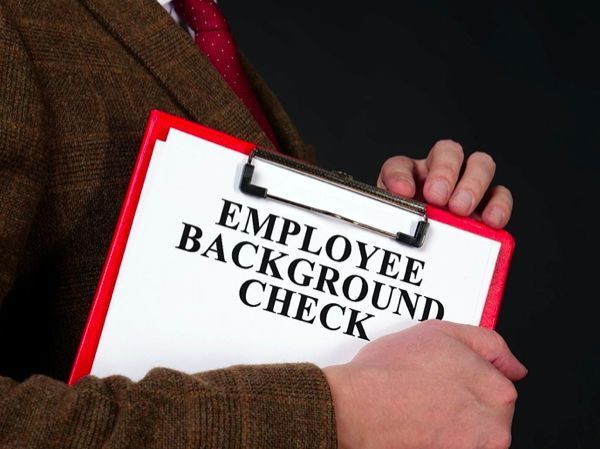How Background Checks Work: Definition & Guide
When it comes to making important decisions—whether hiring someone for a job, renting an apartment, or even entering a business partnership—background checks play a crucial role. But what exactly is a background check, and how does the process work? Let’s dive into this topic to give you a comprehensive understanding of what goes into background checks, how they are conducted, and why they matter.
What Is a Background Check?
At its core, a background check is a process used to verify an individual’s history and gather relevant information about their past. This could include details about their criminal record, employment history, financial status, education, and more. It helps provide clarity about who someone is and whether they are trustworthy, reliable, or a good fit for the situation at hand.
Why Are Background Checks Important?
Beyond verifying a person’s history, background checks also help assess integrity and trustworthiness. One effective method for evaluating ethical behavior in professional settings is through
integrity testing and its role in decision-making.

The Types of Background Checks
There are several types of background checks that may be conducted depending on the situation. Here’s a breakdown of the most common ones:
Criminal Background Check
This type of check examines an individual’s criminal record. It can identify any history of arrests, convictions, or ongoing legal issues. A criminal background check is often the most crucial aspect of a background check because it helps assess safety and risk.
- What’s included?: Arrest records, felony and misdemeanor convictions, sex offender status, pending criminal cases.
- Why it matters: It helps you determine if an individual poses any potential danger or legal issues.
Employment History Check
An employment history check verifies the positions a person has held in the past and the dates they worked for each employer. This check can confirm that the candidate is being honest about their experience and employment history.
- What’s included?: Job titles, dates of employment, reasons for leaving, and sometimes performance evaluations.
- Why it matters: Ensures that the person has the necessary work experience for the role they’re applying for, and can help avoid hiring someone with a questionable past job history.
Credit Report Check
Credit checks are commonly used in the context of hiring or renting. They provide a snapshot of an individual's financial situation, including their ability to manage debt, make timely payments, and avoid financial risks. It’s especially relevant in positions that require financial responsibility, such as in the banking industry.
- What’s included?: Outstanding debts, bankruptcy history, payment patterns, credit score.
- Why it matters: Helps you assess whether someone is financially responsible and capable of handling financial tasks without risks to your business.
Education Verification
Education verification checks confirm whether an individual’s educational background is legitimate. This can include verifying degrees, certifications, and institutions attended. It ensures that the candidate has the qualifications they claim to have.
- What’s included?: Degree, major, institution attended, graduation date.
- Why it matters: Helps ensure that a person’s educational qualifications are accurate, preventing any fraudulent claims.
Reference Check
A reference check involves contacting individuals who know the candidate personally or professionally to verify their character, work ethic, and skills. References may include previous employers, colleagues, or personal contacts.
- What’s included?: Professional skills, personality, job performance.
- Why it matters: Provides insight into the candidate’s behavior and work ethic from people who have direct experience with them.
Social Media and Online Presence Check
An online presence check involves looking at an individual’s social media profiles or other publicly available online information. This can help assess a person’s reputation and public behavior.
- What’s included?: Social media posts, photos, blog articles, online comments.
- Why it matters: It helps to understand how a person presents themselves online and whether their public persona aligns with what they say in person.

The Process of Conducting a Background Check
Step 1: Consent and Permission
Before any background check is performed, it’s important to obtain written consent from the individual. This ensures that the process is legal and that the person is aware that their information is being reviewed.
Why it matters: Consent ensures transparency and prevents legal complications later.
Step 2: Collecting Information
Once consent is obtained, the next step is to gather the necessary information about the individual. This may include their full name, date of birth, Social Security number (in the U.S.), addresses, and employment history. The more detailed the information provided, the more thorough the background check can be.
Why it matters: The more accurate the information provided, the more reliable the background check will be.
Step 3: Conducting the Check
With the information at hand, a private investigator or background check service can begin conducting the check. This involves using databases, government records, and other resources to gather the necessary data. In some cases, a private investigator may even conduct in-person interviews or surveillance to gather additional insights.
Why it matters: It’s crucial that the investigation is thorough and uses reliable, up-to-date sources to avoid missing important details.
Step 4: Reviewing the Results
Once the background check is completed, the results are carefully reviewed to determine any red flags or concerns. This might include discrepancies in employment history, criminal records, or financial issues. It’s important to look at the full picture and understand the context of any findings.
Why it matters: It’s essential to interpret the findings accurately to make informed decisions.
Step 5: Reporting the Findings
After the review, the results are compiled into a comprehensive report. This report typically includes a summary of findings, any concerns or inconsistencies, and recommendations for next steps. It may also include supporting documentation, such as court records or official statements.
Why it matters: A well-documented report ensures transparency and provides a reliable basis for decision-making.

When Should You Conduct a Background Check?
There are many situations where conducting a background check is essential, especially when hiring new employees. If you're looking for a step-by-step approach to ensure a thorough vetting process, check out this
comprehensive guide on background checks for new hires in Sydney.
What Should You Do with Background Check Results?
Once you have the results of a background check, it's important to assess the information carefully:
- Consider the context: Not all criminal charges or financial issues are deal-breakers. It's important to weigh the severity of the findings and the person's overall history.
- Be objective: Don’t jump to conclusions based solely on a report. Consider other factors such as character references and personal interactions.
- Make an informed decision: Ultimately, use the background check to guide your decision but combine it with other factors to ensure a well-rounded judgment.
Background checks are a valuable tool to make informed decisions and protect yourself from potential risks. By understanding the process and knowing what to expect, you can navigate the background check process with confidence and clarity.


